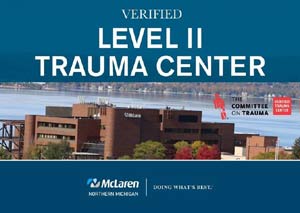

Other organizations that participated in development of the statewide trauma system include the Michigan Health & Hospital Association, the Michigan Trauma Coalition, the Michigan Chapter of the American College of Surgeons, the Statewide Trauma Advisory Committee and other professionals engaged in trauma care. In 2014, the Michigan Department of Community Health recognized the trauma centers for the first time as part of its statewide trauma system. Level I and II have the same care standards for patients however, Level I facilities treat a higher volume of trauma cases annually and have additional requirements that include trauma research and a trauma residency program. Level I is the maximum ranking with such hospitals as Henry Ford Hospital, Detroit Receiving Hospital and Beaumont Hospital in Royal Oak.
#Trauma center levels michigan verification#
Trauma center verification levels range from Level I to Level IV. "Providing care required of a Level II trauma center involves specific clinical expertise, close collaboration between hospital departments and a coordinated partnership with our local emergency responders."Īs verified by the American College of Surgeons, trauma centers must meet basic criteria that includes 24-hour access to specialized staff, equipment and training. "As a Level II trauma center, we have an around-the-clock trauma team and dedicated trauma surgeons to deliver advanced specialty care quickly, when time is critical," Spivey said. Mary Mercy's dedication to providing optimal care for our patients," said Dave Spivey, president and CEO of St.

It was provisionally verified in 2014 and has since treated more than 3,000 patients with trauma injuries. Mary Mercy Livonia has received Level II trauma center verification from the American College of Surgeons, making it the 38th trauma center in Michigan. Health System – Portage, Level II Trauma Facility


 0 kommentar(er)
0 kommentar(er)
